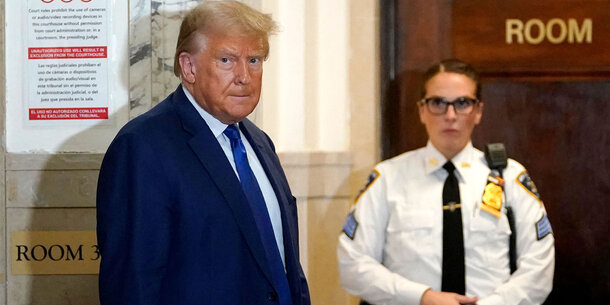Iowa Gov. Kim Reynolds committed Tuesday to issuing an executive order that would restore voting rights to Iowans with past convictions.
This is a big deal — but the details of how and when it happens still matter.
The governor’s announcement marks a national turning point. Iowa is the last state in the country with a policy that categorically bans people with past convictions from voting. The policy disproportionately affects Black Iowans — nearly 10 percent of Black Iowans cannot vote, while the state’s overall rate of disenfranchisement is 2 percent. A change in Iowa’s policy would follow nationwide momentum for restoring the right to vote. In the last two years alone, Florida, Kentucky, New Jersey, New York, Nevada, Colorado, and Louisiana have expanded access to the ballot for people with felony convictions.
Much credit goes to Des Moines Black Lives Matter activists. As the country reckons once again with anti-Black race discrimination embedded in our criminal justice system and our social and political institutions more broadly, BLM activists have urged Reynolds to use her executive authority to restore voting rights to the more than 60,000 Iowans who cannot vote because of mistakes in their past.
Her commitment to restore voting rights by executive order is a big step forward. But we haven’t crossed the finish line yet.
The governor’s statement comes on the heels of the Iowa Senate failing to advance legislation that would have amended Iowa’s constitution to end the state’s criminal disenfranchisement policy. Senate Republicans reportedly declined to vote on the bill in the last days of the legislative session because Reynolds, also a Republican, indicated that she would sign an executive order.
The failure to pass the measure should weigh heavily on Iowa’s senators and on the governor herself. An executive order and a constitutional amendment are not substitutes for one another, they are complementary.
An executive order can restore voting rights today and would allow previously disenfranchised people to vote this year. That kind of immediate action is urgently needed with the 2020 election just months away. But an executive order may also be rescinded by a subsequent administration. Indeed, that has happened before in Iowa. In 2011, shortly after taking office, Gov. Terry Branstad rescinded a 2005 order restoring voting rights to all Iowans who completed sentences for felony convictions. By contrast, amending the state constitution would enact a more permanent fix. But that process would take two to three years before restoration can be implemented.
The senate’s willingness to hide behind a prospective executive order should spur the governor to act immediately, and broadly, to restore voting rights to all Iowans living in the community. That means three things.
First, Reynolds should not wait until late summer or early fall, just weeks before a presidential election. It takes time to identify and register newly eligible voters, to educate potential voters and local election administrators about new eligibility rules, and for new voters to inform themselves about candidates, issues, and voting logistics. To state the obvious, the basic purpose of restoring voting rights is that newly eligible people can register and vote in elections. Reynolds should act as soon as possible to ensure that Iowans whose rights are restored have the time to actually participate in the November election.
Second, the governor should not impose a requirement that Iowans pay off restitution or any other court debt before eligibility is restored. Such a restriction does not serve any governmental interest, public safety or otherwise. That’s because restoring voting eligibility would not wipe away an individual’s obligation to pay off outstanding debt — the duty to pay would remain just the same. And conditioning voting rights restoration on repayment will not suddenly change the economic circumstances of people who are unable to pay off their court debts. As a federal court in Florida recently put it, “one cannot get blood from a turnip or money from a person unable to pay.”
Instead, people who cannot afford to pay would have to sit on the sidelines, election after election, because they are too poor to vote. There is nothing more un-American than a law that conditions access to democracy on a person’s wealth. In fact, federal courts have said just that: a pay-to-vote system is unconstitutional.
Further, if such a restriction on voting existed, it would be impossible to implement any rule fairly. We already know that Iowa’s records regarding criminal history status are a mess. State records reflecting restitution obligations and payments also appear to be in disarray. For example, according to a report commissioned by the Iowa attorney general’s office, Iowa’s counties and probation and parole officers lack a mechanism for tracking payments made toward victim restitution and other court debts. A system in which Iowans cannot determine how much they owe, and therefore, whether they are eligible to vote, would be unconstitutional.
Finally, Reynolds should restore voting rights without excluding people with particular convictions from eligibility. The criminal justice system already accounts for severity of a crime during sentencing. Heaping additional punishment — a lifetime ban on voting — on some individuals serves no public safety purpose and runs counter to the shared American value that every person deserves a second chance.
What’s more, carveouts are difficult for elections officials to administer because they are not trained on how to draw lines based on complex sentencing statuses. The state is still working to clean up its voter list maintenance practices related to people with felony convictions. Barring people with certain kinds of convictions from eligibility would only further confuse election officials and citizens about who is allowed to vote.
Iowans support voting rights restoration by a margin of more than two-to-one. With the political winds at her back, Reynolds should take bold and expansive action to end permanent disenfranchisement in Iowa now. It will be a great day for the country when all 50 states have finally left this unjust and undemocratic policy in the dustbin of history.



